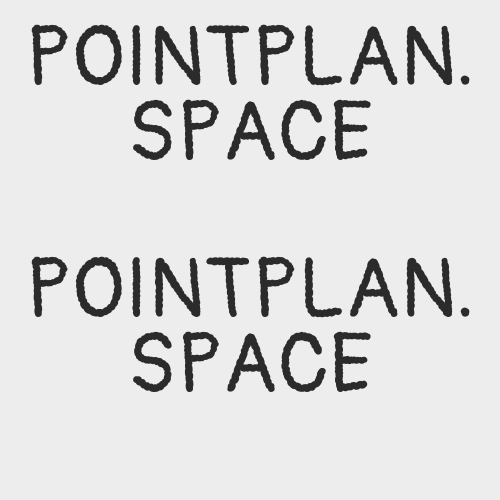Time management is one of the most crucial skills for achieving success in today’s fast-paced world. Whether you’re working on personal goals, professional projects, or managing everyday tasks, how you manage your time directly impacts your productivity and efficiency. In this article, we’ll explore the significance of time management and practical strategies to help you make the most of your time.
The Importance of Time Management
Time is the one resource we all have in equal measure, but how we use it can vary greatly. Good time management allows you to get more done in less time, reduces stress, and leads to better work-life balance. When you manage your time effectively, you are able to prioritize tasks, reduce procrastination, and stay focused on what matters most.
Effective time management isn’t just about doing more; it’s about doing what matters more efficiently. It allows you to take control of your day rather than feeling like your day is controlling you. By mastering time management, you are also improving your decision-making, problem-solving, and organizational skills.
Key Strategies for Effective Time Management
There are several strategies that can help you manage your time effectively and increase your productivity.
1. The Pomodoro Technique
One of the most popular time management techniques is the Pomodoro Technique. This method involves working in focused intervals, typically 25 minutes, followed by a 5-minute break. After four intervals (or “Pomodoros”), you take a longer break of 15 to 30 minutes.
The Pomodoro Technique helps improve focus and reduces burnout by ensuring that you take regular breaks. These short bursts of productivity make it easier to sustain concentration over long periods without feeling overwhelmed.
| Step | Action | Duration |
|---|---|---|
| 1 | Work without interruption | 25 minutes |
| 2 | Take a short break | 5 minutes |
| 3 | Repeat for four cycles, then take a longer break | 15-30 minutes |
2. Prioritize Tasks with the Eisenhower Matrix
The Eisenhower Matrix is a tool for prioritizing tasks based on their urgency and importance. It divides tasks into four categories:
- Urgent and Important: Do these tasks immediately.
- Not Urgent but Important: Schedule these tasks to be done later.
- Urgent but Not Important: Delegate these tasks if possible.
- Not Urgent and Not Important: Consider eliminating or postponing these tasks.
By organizing tasks this way, you ensure that you focus on what truly matters and avoid wasting time on low-priority activities.
3. Time Blocking
Time blocking involves dividing your day into blocks of time, each dedicated to a specific task or activity. This method helps reduce distractions and multitasking. By allocating time to focus on a single task, you can increase your concentration and ensure you’re dedicating sufficient time to each task.
You can plan your day by creating blocks for work, meetings, exercise, meals, and even relaxation. For example, if you know you need to work on a project, set aside a two-hour block during the morning, where you focus solely on that task.
Overcoming Common Time Management Challenges
Despite the best intentions, there are several challenges that can hinder effective time management. Here are some of the most common ones and how to overcome them:
Procrastination
Procrastination is one of the biggest barriers to effective time management. It often stems from fear, perfectionism, or lack of motivation. Combat procrastination by breaking tasks into smaller, more manageable steps. Starting with a small task is less daunting and helps create momentum.
Distractions
In today’s digital age, distractions are everywhere. Social media, emails, and phone notifications can pull you away from your work. To combat distractions, turn off notifications during work hours and set specific times to check emails or social media. Create a quiet, distraction-free work environment that allows you to focus on your tasks.
Lack of Planning
Not having a clear plan can lead to wasted time. Make it a habit to plan your day the night before. Set clear goals, prioritize tasks, and estimate how much time each task will take. Use a to-do list or a digital calendar to stay organized and ensure you’re on track.
Maximizing Efficiency with Automation
In today’s busy world, automation can save you a lot of time. From scheduling tools to email filters, many tasks can be automated to reduce the time spent on repetitive activities. Consider using tools like:
- Trello or Asana for project management and task tracking
- Zapier to automate workflows between apps
- Calendly for scheduling meetings
- IFTTT to automate common tasks between apps
By automating repetitive tasks, you free up time for more important work.
Maintaining Balance and Avoiding Burnout
While managing your time efficiently is crucial, it’s also important to ensure that you take care of your mental and physical well-being. Overworking yourself can lead to burnout, which negatively impacts productivity. Make time for regular breaks, exercise, and activities that help you recharge.
Setting boundaries between work and personal time is essential. Create a schedule that allows you to balance both your professional and personal responsibilities, and make self-care a priority.
Conclusion
Effective time management is about more than just checking off tasks — it’s about prioritizing, staying focused, and maintaining balance. By applying techniques such as the Pomodoro Technique, time blocking, and using tools like the Eisenhower Matrix, you can improve your productivity and reduce stress.
Remember that time management is a skill that requires practice and consistency. Start small, implement one technique at a time, and gradually refine your approach. Over time, you’ll find that you’re able to manage your time more effectively, leading to greater success and satisfaction in both your personal and professional life.

